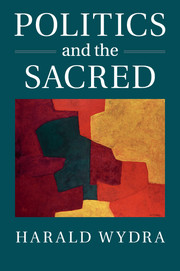Book contents
- Politics and the Sacred
- Politics and the Sacred
- Copyright page
- Dedication
- Contents
- Book part
- Introduction: the sacred and the political
- 1 The extraordinary and the political imagination
- 2 The politics of transcendence
- 3 Secular sources of political theologies
- 4 Democracy and the sacred
- 5 Thepower of symbols: communism and beyond
- 6 Generations of European imaginations
- 7 The spell of humanity
- 8 Victims and new wars
- Epilogue: rationalities of the sacred
- Bibliography
- Index
- References
Bibliography
Published online by Cambridge University Press: 05 May 2015
- Politics and the Sacred
- Politics and the Sacred
- Copyright page
- Dedication
- Contents
- Book part
- Introduction: the sacred and the political
- 1 The extraordinary and the political imagination
- 2 The politics of transcendence
- 3 Secular sources of political theologies
- 4 Democracy and the sacred
- 5 Thepower of symbols: communism and beyond
- 6 Generations of European imaginations
- 7 The spell of humanity
- 8 Victims and new wars
- Epilogue: rationalities of the sacred
- Bibliography
- Index
- References
- Type
- Chapter
- Information
- Politics and the Sacred , pp. 234 - 255Publisher: Cambridge University PressPrint publication year: 2015



